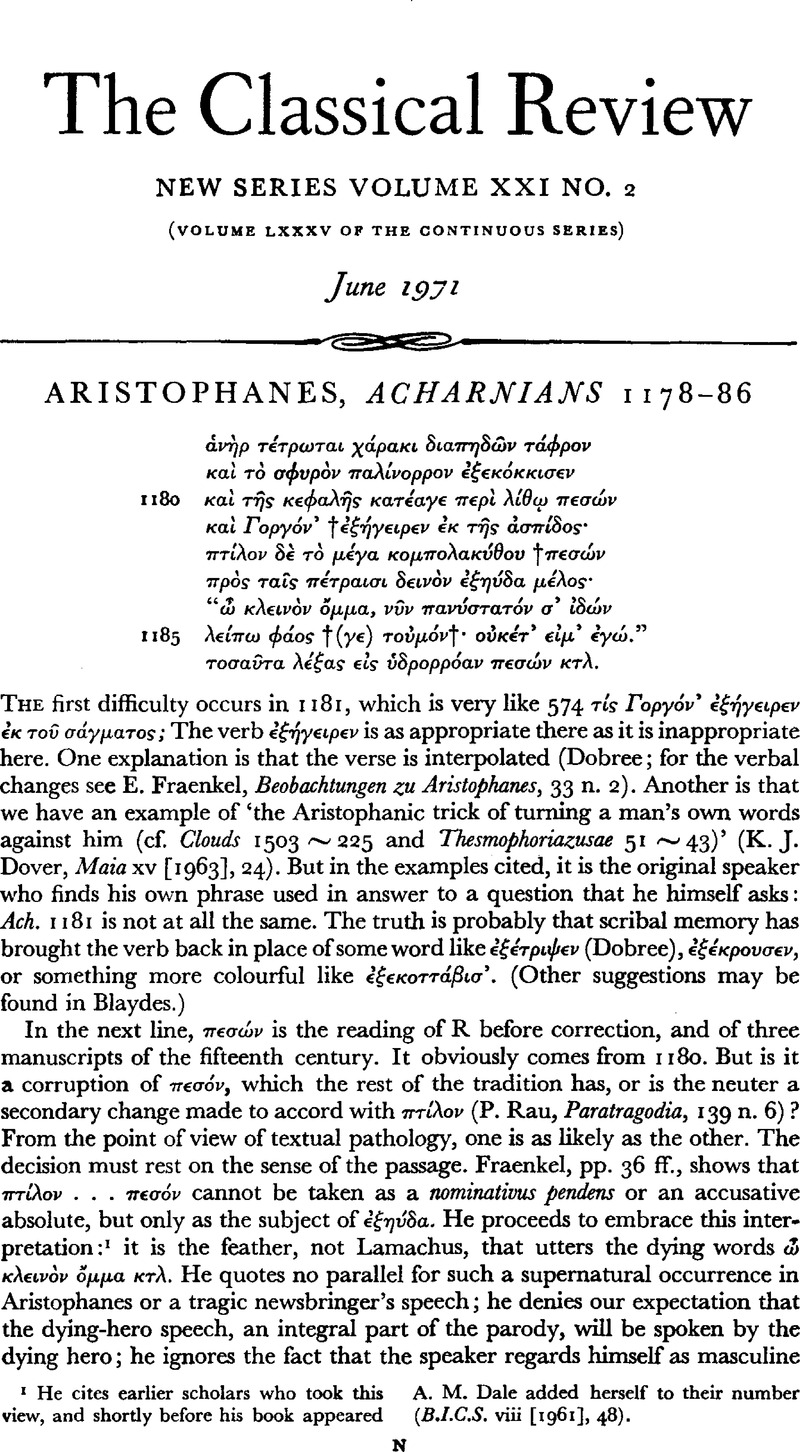No CrossRef data available.
Article contents
Aristophanes, Acharnians 1178–86
Published online by Cambridge University Press: 27 February 2009
Abstract

- Type
- Review Article
- Information
- Copyright
- Copyright © The Classical Association 1971
References
page 157 note 1 He cites earlier scholars who took this view, and shortly before his book appeared Dale, A. M. added herself to their number (B.I.C.S. viii [1961], 48).Google Scholar
page 158 note 1 ‘Er wollte nach der tragischen ῥῦσις mit einer bei Euripides in solchen Fällen beliebten Übergangsformel fortfahren, und in der Sphäre dieses absichtlichen Halbunsinns störte es ihn ganz und garnicht wenn er den Eindruck erweckte, als wäre soeben nicht der Helmbusch, sondern Lamachos selbst in die Abschiedsklage ausgebrochen. Das κομπολακύθου πτίλον gehörte ja für das Publikum der Acharner seit den Versen 585–589 untrennbar zu diesem Feldherrn und wurde jetzt mühelos zum Sprachrohr seiner Schmerzen’ (p. 40). Similarly, but with less conscientious effort, Dale loc. cit.
page 158 note 2 I think it quite possible that κομπολακύis also spurious, an intrusive gloss inspired by 589, as Dover argues, art. cit. 24 f.
page 158 note 3 Coulon, , Philol. xcv (1942), 40Google Scholar, cleverly compares Soph. El. 1354 ὦ φίλτατον φῶς, glossed ἐμὸν δηλονότι (p. 273 Dindorf).




